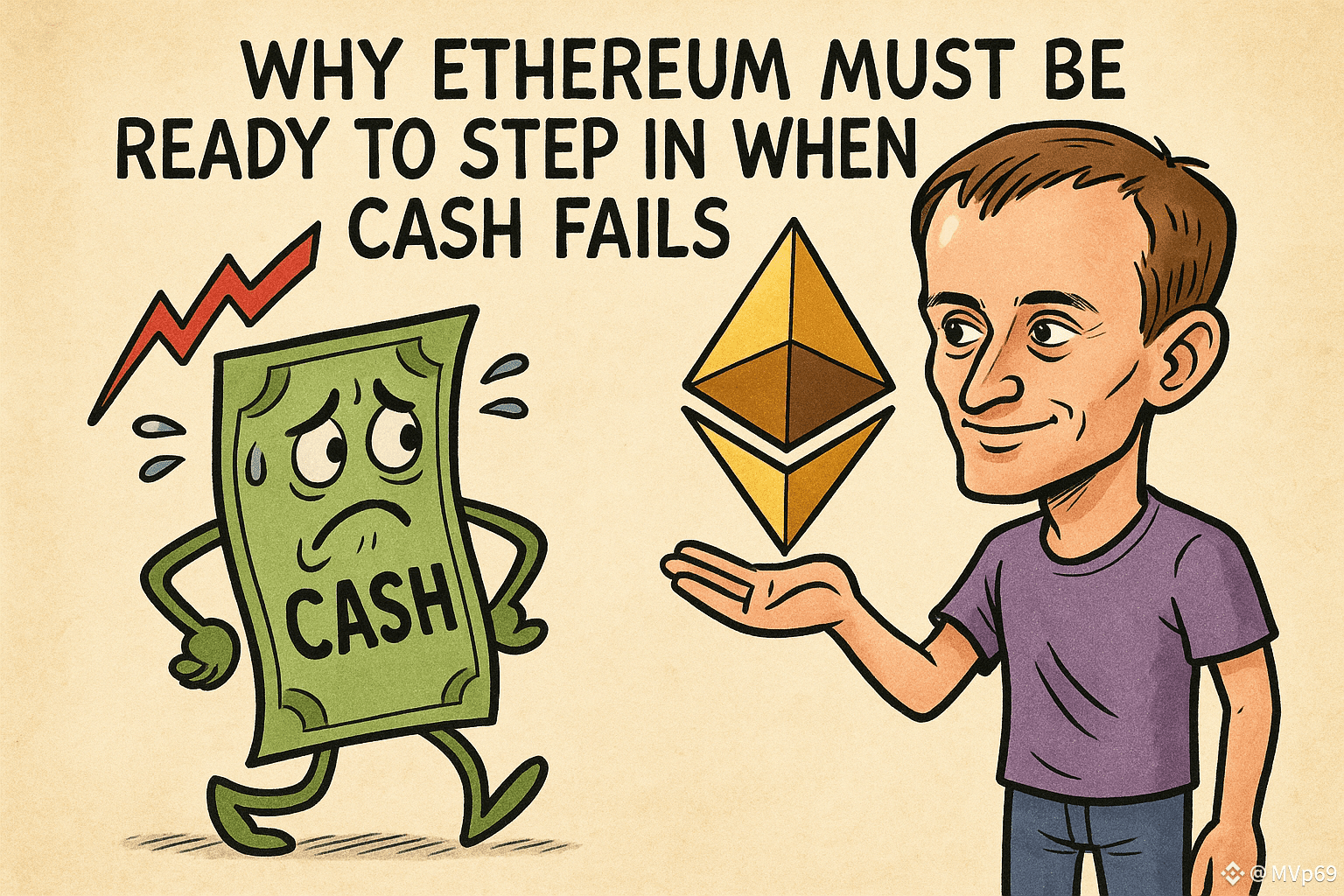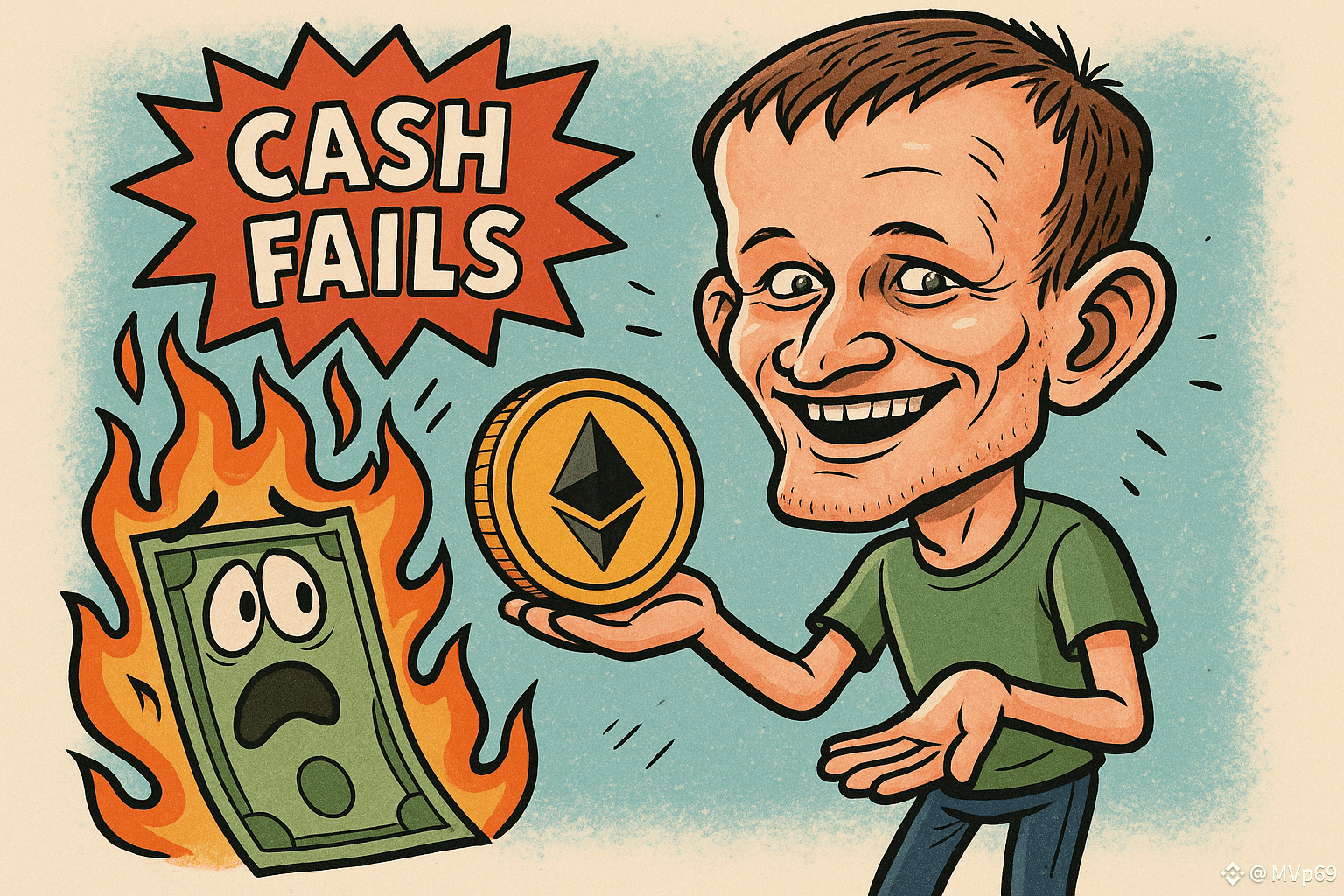
Disclaimer: This article aims to inform rather than advise. Always carry out your own research and assess risk when engaging in high velocity, speculative markets.
As Nordic nations scale back their push for cashless economies, Ethereum’s co founder, Vitalik Buterin, has emphasised that the platform needs to be far more resilient and private. He argues that in times of crisis, when digital payment systems falter, #Ethereum could function as a vital fallback if it evolves effectively.
Nordic Nations Reverse Cashless Policies
Sweden and Norway, once hailed as poster children of cashless societies, have recently urged citizens to retain physical currency in case of emergencies. Sweden is even advising households to store at least a week’s worth of cash. In Norway, it has become unlawful for retailers to refuse cash payments. These reversals underscore the fragility of centralised digital systems during conflicts, cyber attacks, or power failures.
The Limits of Centralised Digital Payments
Buterin highlights the lessons from these Nordic shifts: centralised digital infrastructures may be efficient but can prove vulnerable during national emergencies. This fragility has sparked a renewed appreciation for physical cash as a dependable alternative when electronic systems are offline.
What Ethereum Needs to Become
According to Buterin, if Ethereum is to serve as a credible digital backup, it must enhance two key aspects:
Resilience – The network must be dependable even when traditional systems collapse.
Privacy – Transactions must support private, offline transfers to function effectively in a crisis.
Although the underlying technology for off grid, secure transactions exists, full deployment depends on trusted hardware or mechanisms to prevent double spending after the fact.
The Path Ahead
For $ETH truly serve as a cash alternative, it must improve its privacy features and decentralisation. This involves overcoming current technical limitations, such as scalability constraints and reliance on internet connectivity. By adopting offline-friendly transaction technologies, the platform could step in during crises when physical cash is unavailable.

The Stakes: Beyond Convenience
This debate transcends technical considerations it's a matter of societal resilience. If Ethereum can match or surpass cash in emergencies, it can secure its place as more than just a speculative asset or programmable money. It could become an essential layer of financial infrastructure, capable of operating when traditional systems fail.
